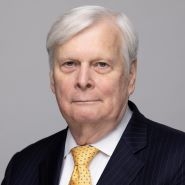Using Expert Testimony in Prosecution
- April 13, 2018
- Article
Associated People
Associated Practices
Associated Technologies
The recent decision by the Federal Circuit in In re Merck & Cie shows what an uphill battle it can be to overcome a finding of obviousness by the PTAB. Merck argued that the PTAB’s interpretation of the prior art, van Etten et al., was simply unreasonable and, thus, the PTAB’s decision was not supported by substantial evidence.
In affirming the PTAB, the Federal Circuit noted that its reading of the prior art need not “be the only reasonable one” to be upheld. Thus, it was irrelevant and not necessary to decide whether Merck’s interpretation of the prior art was better:
We need not and do not decide whether Merck's view of what van Etten teaches is the better view. We conclude only that Merck's view is not the only reasonable view.
This case illustrates the difficulty in overcoming an obviousness rejection based on a less than optimal reading of the prior art.
One way to tip the balance back in favor of the applicant is to rely on the opinion of an expert in the relevant field which explains why the applicant’s interpretation of the prior art is reasonable and that of the PTO is not. Making such an opinion a part of the record in a declaration will not only strengthen the applicant’s position on appeal, but may also obviate the appeal altogether. Many Examiners will be persuaded by an opinion presented by an expert, while otherwise dismissing the same position as mere attorney argument.
Of course, due to the added cost, filing an expert declaration might not be appropriate for every application. In many cases, however, the cost of retaining an expert will be less than the cost of an appeal.
So, when faced with such an obviousness rejection in an important case, an applicant should consider relying on an expert declaration, before embarking on an appeal.
Some tips for an expert declaration:
- Always disclose any relationship between the expert and the applicant
- The expert need not be from outside the company; in some fields, the people with the most expertise are employed by the applicant
- If using an outside expert, disclose any compensation for the time in preparing the declaration
- Establish the declarant’s expertise
- Support the opinion with sound scientific reasoning
- If the Office’s position is unreasonable, have the expert say so
Recent Publications
5 IP Rules to Know to Protect Your Business in the United States (article in French)
Coaching INPI Newsletter










 Counseling & Strategic Advice
Counseling & Strategic Advice IP Transactions
IP Transactions Litigation
Litigation PTAB Proceedings
PTAB Proceedings Start-Up
Start-Up Technology Transfer
Technology Transfer Trademark & Designs
Trademark & Designs U.S. Patent Procurement (Application Drafting & Prosecution)
U.S. Patent Procurement (Application Drafting & Prosecution)








